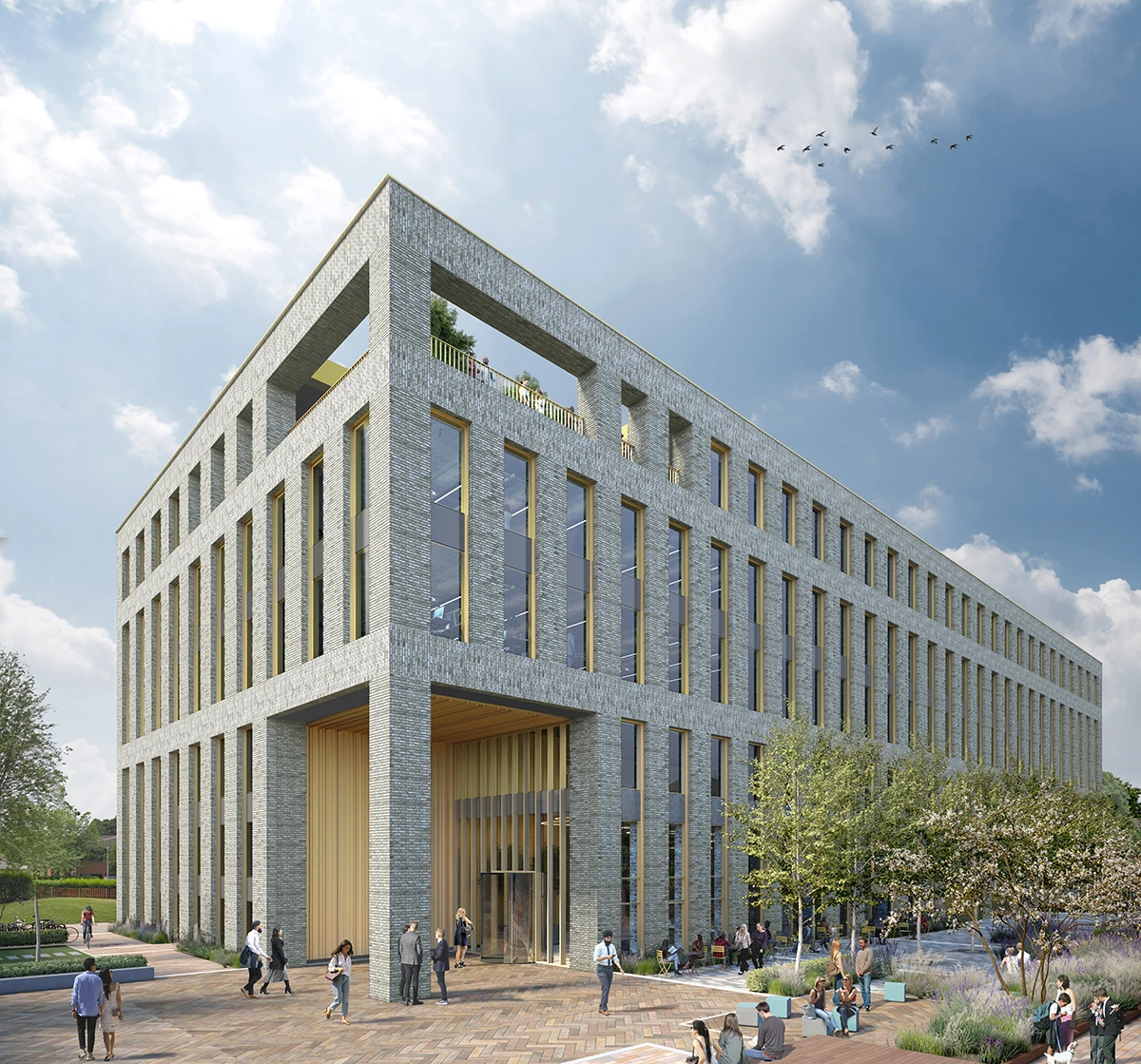
Partner Article
Planning approved for Manchester's new base for materials science, engineering and energy technology
Manchester City Council has approved plans for the next phase of the masterplan at Manchester Science Park, which will provide a purpose-built space to address the industry-specific needs of computer engineering, energy technology, light manufacturing and materials science startups and SMEs.
The redevelopment of the Base building will provide 80,000 sq ft of world-leading office and coworking space, following the successful development of the Bright Building which is fully let to 24 digital technology businesses.
Designed by Russell Bridge architects, the development is expected to be delivered by the end of 2021 and forms part of the updated Manchester Science Park Strategic Regeneration Framework masterplan.
Set over five floors in the heart of Manchester’s Oxford Road Corridor innovation district, companies will be able to access a dedicated MakerSpace on the ground floor with workshop space to produce prototypes or modify existing products, along with a welcome lounge, break-out spaces, informal meeting spaces, and a roof terrace.
The area around Base will be redeveloped to provide green space and areas to relax, socialise or host informal meetings. Customers locating to Base will be able to access wider facilities and amenities within Manchester Science Park, including meeting rooms, event space, Friska café, the Old Abbey Pub, sport and cycle drying facilities, secure bike storage and electric charging points.
The Bright Building has led the way in the North West in terms of sustainability, proptech and collaboration and Base will equally be committed to these three themes. The first new building to be submitted for planning since Bruntwood SciTech joined the UKGBC commitment to become a net zero carbon built environment by 2030, Base’s design embraces the latest innovations in building materials and environmental technology. These include the installation of a 700 metre square solar panel, demand side response technology, occupancy and utilisation sensors, smart BMS, Multi Gigabyte connectivity and infrastructure for future battery reliance capabilities.
Businesses moving to Base will be joining a specialist community of over 300 like-minded, fast growth digital health, digital technology, biomedical and life sciences companies as well as Bruntwood SciTech’s network of over 600 companies. These companies include SteamaCo who have revolutionised energy management in Africa, Phagenesis who pioneered the Phagenyx treatment for Dysphagia, Zilico who are developing the next generation of diagnostic devices for cervical cancer, rapid prototyping and 3D printing companies such as DiceyTech, and other light manufacturing companies like Lucid Innovation who offer their services on the campus to enable those who make and create.
Businesses will also be able to access bespoke programmes of business support which include R&D support, finance, funding and professional services advice, and direct access to the world-class talent, research and capabilities of both the University of Manchester and Manchester Metropolitan University which are both adjacent to the campus.
Thomas Renn, Managing Director, Manchester Science Partnerships said: “We are delighted to have secured planning permission for Base, which forms the next phase of our masterplan to expand Manchester Science Park to 1 million square feet, and is testament to our confidence in the ongoing expansion of Manchester’s knowledge and innovation economy and its position as a world-leading centre of innovation.
“We are in the midst of the fourth industrial revolution, with growing need from the engineering, energy technology, light manufacturing and materials science sectors for specialist workspaces that meet the requirements of their product creation and ongoing business growth.
“We are pressing full steam ahead with the construction of Base and are very excited to start on site.”
The new scheme represents another step forward for Manchester’s Oxford Road Corridor, one of the North of England’s most important commercial areas, generating around £3bn in GVA per year.
This was posted in Bdaily's Members' News section by Sarah Jones .






 A legacy in stone and spirit
A legacy in stone and spirit
 Shaping the future: Your guide to planning reforms
Shaping the future: Your guide to planning reforms
 The future direction of expert witness services
The future direction of expert witness services
 Getting people into gear for a workplace return
Getting people into gear for a workplace return
 What to expect in the Spring Statement
What to expect in the Spring Statement
 Sunderland leading way in UK office supply market
Sunderland leading way in UK office supply market
 Key construction developments in 2025
Key construction developments in 2025
 Mediation must be part of planning process
Mediation must be part of planning process
 From apprentice to chief financial officer
From apprentice to chief financial officer
 Don't stifle growth with apprenticeship cuts
Don't stifle growth with apprenticeship cuts
 The start-up landscape: What lies ahead in 2025
The start-up landscape: What lies ahead in 2025
 JATCO adds welcome drive to automotive sector
JATCO adds welcome drive to automotive sector